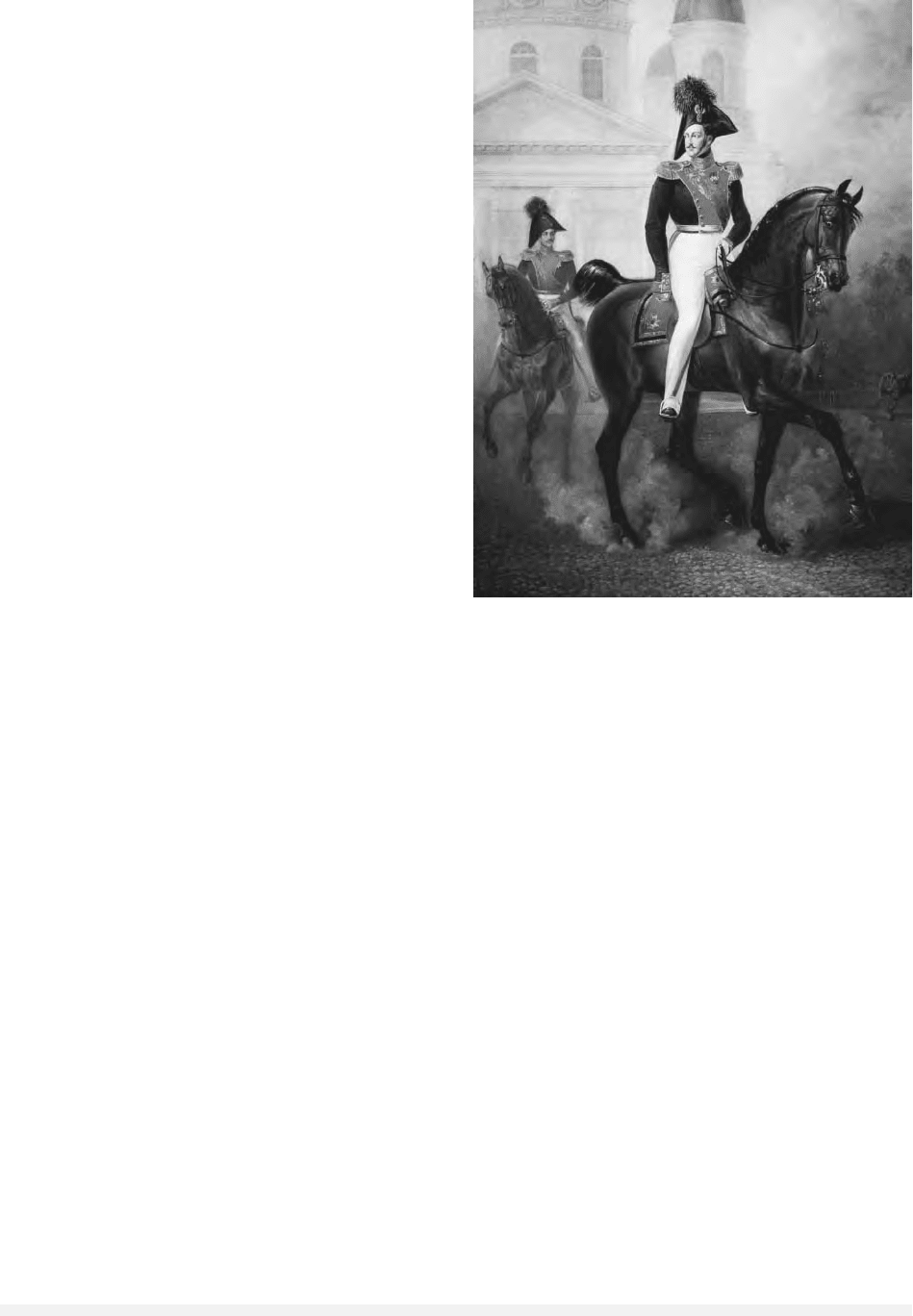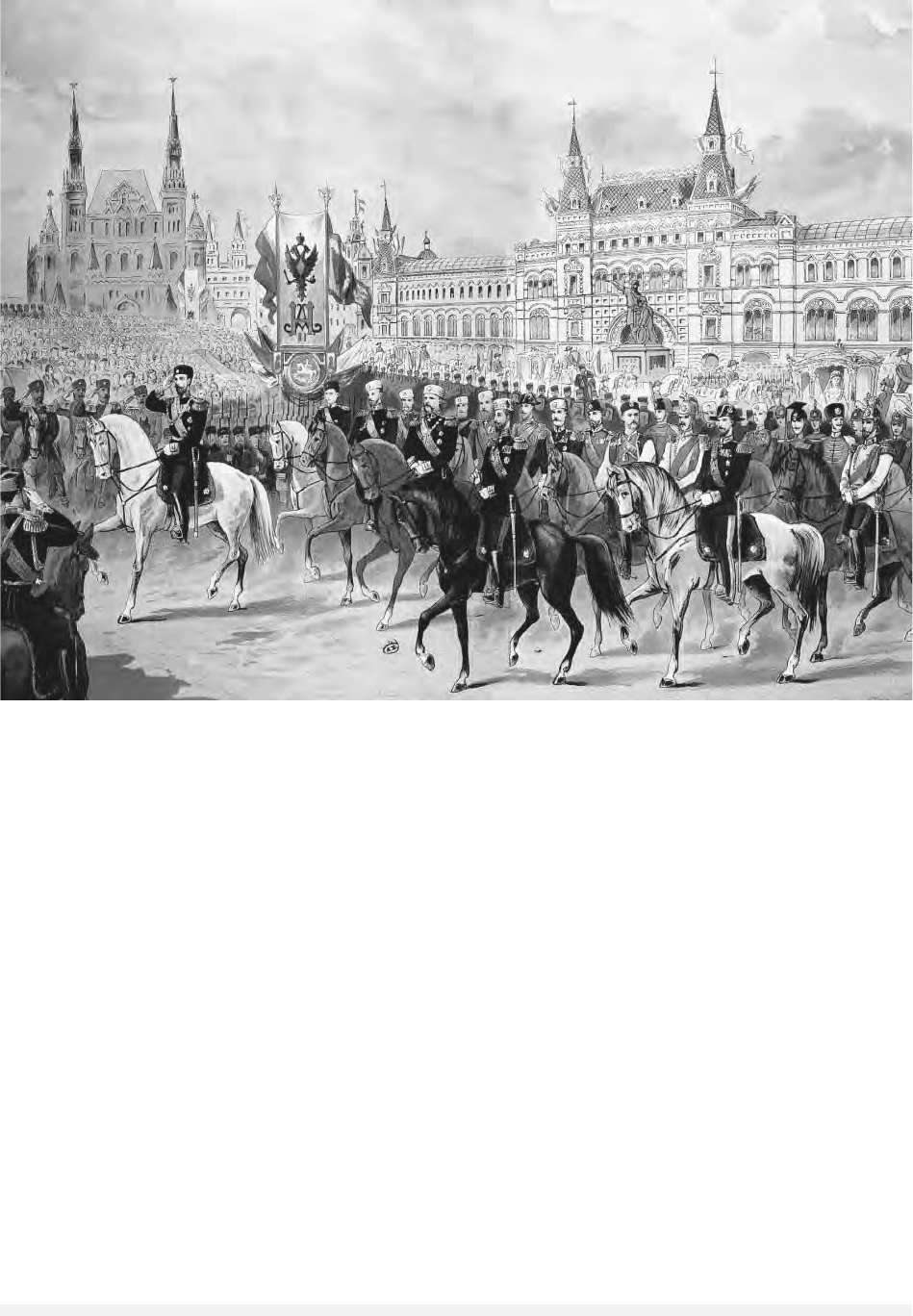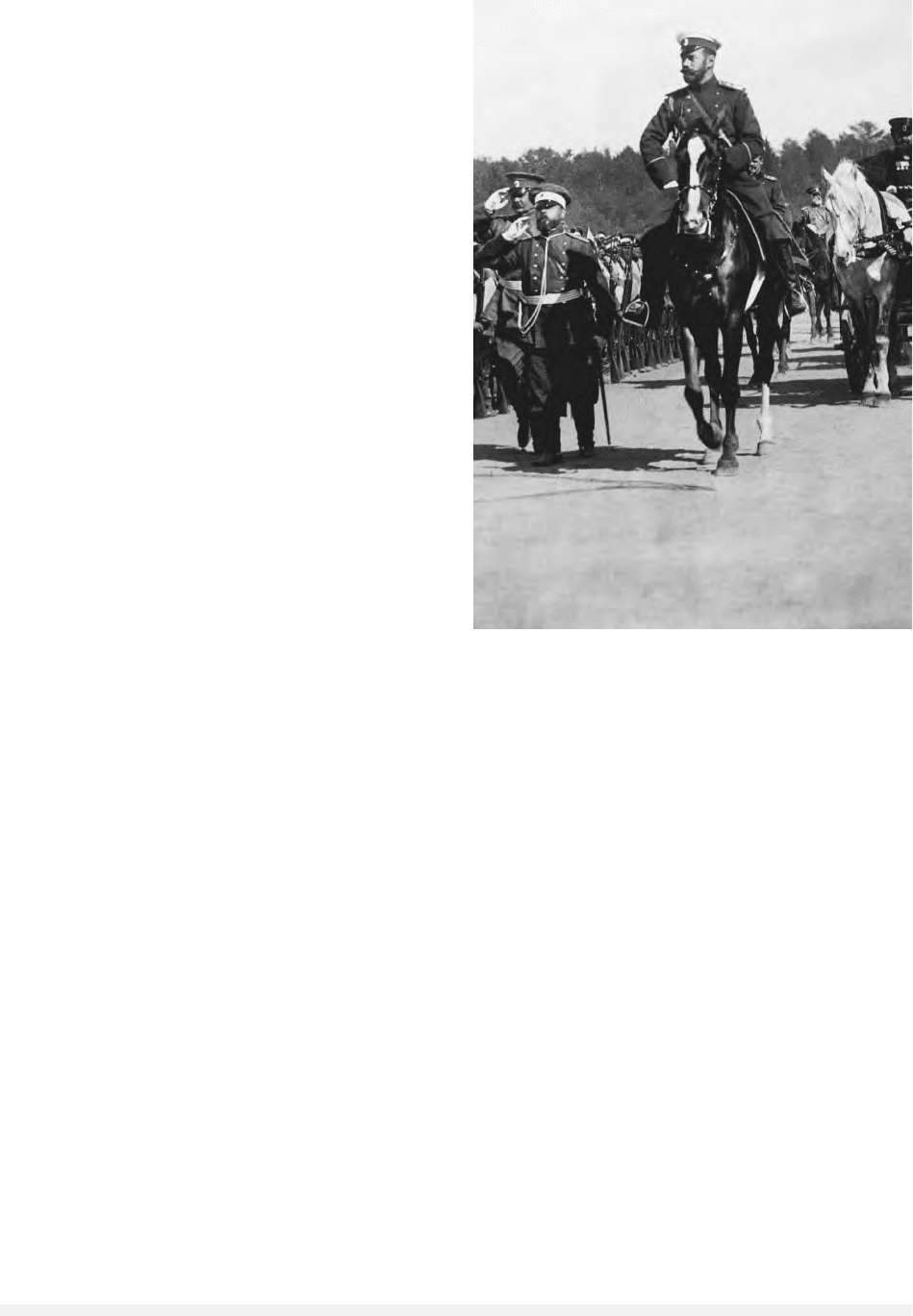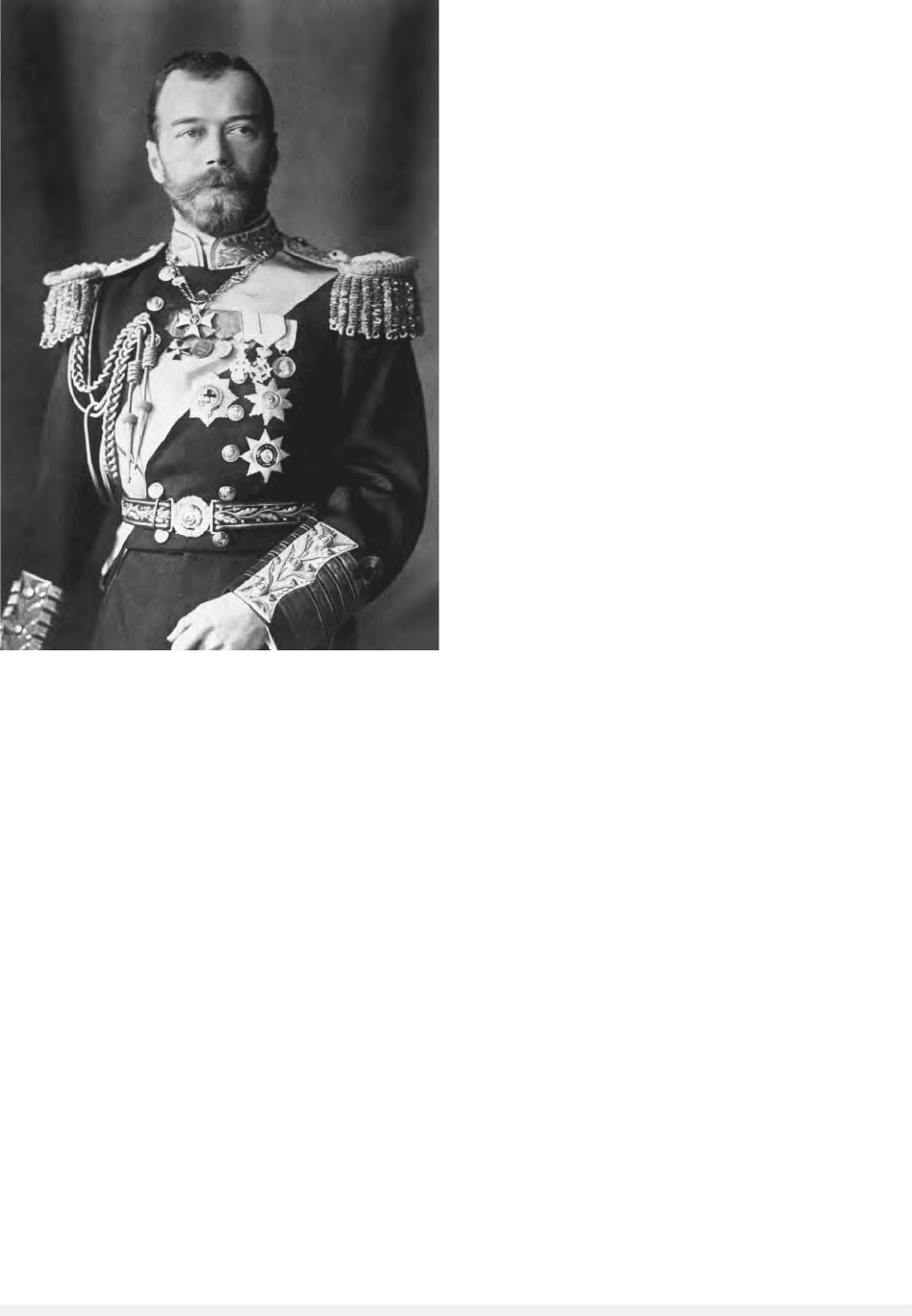Encyclopedia of Russian History
Подождите немного. Документ загружается.


ther, amounting to a conceptual revolution that
shook the Soviet system to its foundations.
It was in 1987 that Gorbachev first used the
term “pluralism” in a positive sense, albeit in a
qualified form as “socialist pluralism” or a “plu-
ralism of opinion.” Hitherto, “pluralism” had al-
ways been a pejorative term in the Soviet lexicon,
condemned as an alien and bourgeois notion. Once
the taboo on praising pluralism had been broken,
articles on the need to develop pluralism within the
Soviet Union began to appear, often without the
“socialist” qualifier. By 1990 Gorbachev himself
was advocating “political pluralism.” Another con-
cept on which an anathema had been pronounced
for many years was “market,” but again—for ex-
ample, in his 1987 book—Gorbachev embraced the
idea of a “socialist market.” Before long other con-
tributors to the growing debates in the Soviet
Union were advocating a market economy, some
of them explicitly differentiating this from social-
ism as they understood it.
The New Political Thinking could, in its earli-
est manifestations, be seen as a new Soviet ideol-
ogy, a codified, albeit genuinely innovative, body
of correct thinking. It gave way, however, to a
growing freedom of speech and of debate both
within the Communist Party and in the broader
society—a new political reality that partly resulted
from the boldness of the intellectual breakthrough.
Among the new concepts that were given Gor-
bachev’s official imprimatur between 1985 and
1988 were the principle of a state based on the rule
of law, the idea of checks and balances, glasnost
(openness or transparency), perestroika (literally
reconstruction, but a term that became a synonym
for the radical reform of the Soviet system), de-
mocratization (which initially meant freer discus-
sion within the Communist Party but by 1988—at
the Nineteenth Party Conference—had come to em-
brace the principle of contested elections for a new
legislature), and civil society.
The New Political Thinking represented no less
of a break with the Soviet past in its foreign pol-
icy dimension. A class approach to international re-
lations was explicitly discarded in favor of the idea
of all-human interests and universal values. The
idea of global interdependence superseded the zero-
sum-game philosophy of kto kogo (who will crush
whom). Whereas in the past the “struggle for
peace” had often been a thin disguise for the pur-
suit of Soviet great-power interests, the new think-
ing endorsed by Gorbachev stressed that in the
nuclear age peace was the only rational option if
humankind was to survive. This provided justifi-
cation for a new and genuinely cooperative ap-
proach to international relations.
See also: DEMOCRATIZATION; GLASNOST; GORBACHEV,
MIKHAIL SERGEYEVICH; PERESTROIKA
BIBLIOGRAPHY
Brown, Archie (ed.). (2004). The Demise of Marxism–
Leninism in Russia. London: Palgrave.
Chernyaev, Anatoly. (2000). My Six Years with Gorbachev.
Philadelphia: Pennsylvania State University Press.
Gorbachev, Mikhail. (1987). Perestroika: New Thinking for
our Country and the World. London: Collins.
Nove, Alec. (1989). Glasnost in Action. London: Unwin
Hyman.
Palazchenko, Pavel. (1997). My Years with Gorbachev and
Shevardnadze: The Memoir of a Soviet Interpreter.
Philadelphia: Pennsylvania State University Press.
Yakovlev, Alexander. (1993). The Fate of Marxism in Rus-
sia. New Haven, CT: Yale University Press.
A
RCHIE
B
ROWN
NEWSPAPERS
The first news sheet issued with some regularity
in Russia was Sankt Peterburgskie vedemosti (St.
Petersburg Herald), a biweekly published by the
Imperial Academy of Sciences, beginning in 1727.
Until the Great Reforms of 1861–1874, nearly all
newspapers in Russia were official bulletins issued
by various government institutions. To the extent
that there was a print-based public sphere in pre-
Reform Russia, it was dominated by the “thick
journals” that published literary criticism and
philosophical speculation.
The relaxing of censorship and limits on pri-
vate publications during the Great Reforms, ad-
vances in printing technology, and the spread of
literacy in Russian cities led to the development of
a mass-market, commercial press by the 1880s.
Daily papers targeting various markets covered
stock-market news and foreign affairs, as well as
the more sensational topics of crime, sex scandals,
and natural disasters. As Louise McReynolds has
demonstrated, Russian commercial mass newspa-
pers resembled their counterparts in North Amer-
ica and Western Europe in appealing to and
fostering nationalist sentiment.
NEWSPAPERS
1043
ENCYCLOPEDIA OF RUSSIAN HISTORY

By World War I “copeck” (penny) newspapers
in Moscow and St. Petersburg achieved circulations
comparable to those of mass circulation organs in
the United States and Western Europe. The most
popular newspaper in the Russian Empire in 1914
was Russkoe slovo (Russian Word), with a circula-
tion of 619,500.
After the Bolsheviks seized power in October
1917, they created an entirely new kind of mass
press. By the summer of 1918 the Soviet govern-
ment had shut down all non-Bolshevik newspapers
on their territory. Bolshevik newspapers during the
years of revolution and civil war (1917–1921)
aimed to mobilize the populace in general and Party
members in particular for war. Resources were
scarce, and typical civil war newspaper editions
were only two pages long. The state funded the
press throughout the Soviet era.
The Bolsheviks shared with most Russian in-
tellectuals of the revolutionary era a profound con-
tempt for the sensationalistic urban copeck
newspapers that aimed to entertain a mass audi-
ence. They created a mass press that was supposed
to educate, guide, and mobilize readers, not enter-
tain them. Other important functions of Soviet
newspapers were the gathering of intelligence on
popular moods and the monitoring of corruption
in the Party or state apparatus. To fulfill these
tasks, the newspapers solicited and received liter-
ally millions of readers’ letters, some of which were
published. The editorial staff also forwarded letters
denouncing crime and corruption to the appropri-
ate police or prosecutorial organs. They used let-
ters to compose reports on popular attitudes that
were sent to all levels of party officialdom.
The role of direct censorship in Soviet newspa-
per production has been overemphasized. Agenda-
setting by party and state organs was more
important. The role of official censors in control-
ling press content was negligible. Soviet journalists
were generally self-censoring, and they followed
agendas set by the Communist Party’s Central
Committee and other official institutions.
Illegal newspapers were central to Bolshevik
Party organization in the prerevolutionary years.
This heritage of underground political culture con-
tributed to a Soviet fetishization of newspapers as
the mass medium par excellance. As a result of this
fetishization, Communist propaganda officials and
journalists were slow to understand and effectively
use the media of radio and television. By the 1970s,
Soviet means and methods of mass persuasion and
mobilization were far inferior to those developed
by advertising agencies and governments in the
wealthy liberal democracies.
See also: CENSORSHIP; IZVESTIYA; JOURNALISM; PRAVDA;
THICK JOURNALS
BIBLIOGRAPHY
Brooks, Jeffrey. (2000). Thank You, Comrade Stalin!
Princeton, NJ: Princeton University Press.
Hopkins, Mark. (1970). Mass Media in the Soviet Union.
New York: Pegasus Books.
Kenez, Peter. (1985). The Birth of the Propaganda State:
Soviet Methods of Mass Mobilization, 1917–1929.
Cambridge, UK: Cambridge University Press.
McReynolds, Louise. (1991). The News Under Russia’s Old
Regime. Princeton, NJ: Princeton University Press.
M
ATTHEW
E. L
ENOE
NEW STATUTE OF COMMERCE
The New Commerce Statute (a translation of the
Russian Novotorgovy ustav of April 22, 1667; ustav
might also be translated as “regulations”) was the
Russian expression of Western mercantilism and
was sponsored by boyarin Afanasy Lavrentievich
Ordin-Nashchokin (1605–1680), a former gover-
nor of Pskov, the westernmost of Russia’s major
cities, who in 1667 was head of the Chancellery of
Foreign Affairs. The 1667 document was an ex-
pansion of the Commerce Statute (or Regulations)
of 1653, which introduced a unified tariff schedule
while repealing petty transit duties and increasing
protectionist duties against foreigners. The 1667
regulations remained in force until replaced by the
Customs Statute of 1755.
The 1667 document regulated both internal
trade and trade relations with foreigners. In a 1649
petition to the government, the Russian merchants
lamented that they could not compete with the for-
eign merchants, who were forbidden to engage in
internal Russian trade (where they had been giving
favorable credit terms to local, smaller Russian
merchants) and were restricted to the port cities at
times when fairs were being held. The foreigners
were accused of selling shoddy goods, which was
forbidden. Foreigners were forbidden to sell any
goods retail in the provinces or in Moscow, or any
Russian goods among themselves upon pain of con-
fiscation of the merchandise. Internal customs du-
NEW STATUTE OF COMMERCE
1044
ENCYCLOPEDIA OF RUSSIAN HISTORY

ties of 5 percent were to be collected from Russians
on sales of weighed goods (ad valorem sales) and
4 percent from unweighed goods. A duty of 10 per-
cent was to be collected on salt and 15 percent on
liquor. Excepting liquor, foreigners had to pay a 6
percent duty on their foreign goods sold to autho-
rized Russian wholesalers. A foreigner had to pay
a 10 percent export duty, except when he paid for
the goods with gold and silver currency. The ex-
port of gold and silver from Muscovy was forbid-
den. Local officials (acknowledged by Moscow as
likely to be corrupt) were ordered repeatedly in the
statute not to interfere with commerce. Much pa-
perwork was required to ensure compliance with
the 1667 regulations.
See also: FOREIGN TRADE; MERCHANTS; ORDIN-NASH-
CHOKIN, AFANASY LAVRENTIEVICH.
BIBLIOGRAPHY
Hellie, Richard, ed. and tr. (1967). Readings for Introduc-
tion to Russian Civilization. Chicago: Syllabus
Division, The College, University of Chicago.
R
ICHARD
H
ELLIE
NICARAGUA, RELATIONS WITH
The Soviet Union had no diplomatic or economic
relations with Nicaragua before the Somozas’ fall
in 1979. Contacts were through Communist Party
organizations such as the Nicaraguan Socialist
Party (PSN), founded in 1937 and illegal until 1979.
While not opposing revolutionary violence in prin-
ciple, the Communists believed that conditions in
Nicaragua were not ripe for armed revolt. A mem-
ber of the Party who had visited the USSR in 1957,
Carlos Fonseca Amador, broke with the PSN on this
issue. He called for insurrection and founded the
Sandinista Front of National Liberation (FSLN) in
1961.
The Sandinistas led the revolutionary upheaval
that overthrew the Somozas in 1979. They took
full control of Nicaragua and ignored the commu-
nists (PSN). Unlike other Soviet satellites, the San-
dinistas left about half of the economy in private
hands, and agriculture was not collectivized. The
FSLN leader, Daniel Ortega, lacked the authority in
the Council of State that Leonid Brezhnev and
Mikhail Gorbachev had in the Soviet Politburo.
In spite of the fact that the Sandinistas’ success
meant defeat for the local Communists, Moscow
quickly established good relations with the San-
dinista government. Soviet economic and military
aid approached billions of rubles, far less than to
Cuba. While offering political, economic, and mil-
itary support, Moscow sought to limit Nicaragua
as an economic and strategic burden. Cuba actively
supported the Sandinistas in Nicaragua and abroad.
Meanwhile, the Reagan administration was
backing an armed paramilitary force, the contras,
which sought to overthrow the Sandinistas. The
United States also aided a right-wing regime in El
Salvador besieged by revolutionary forces suppos-
edly encouraged by the Sandinistas. Both U.S. ef-
forts were inconclusive.
Early in 1990 President George Bush and Gen-
eral Secretary Gorbachev began cooperating in the
region, as they were in Eastern Europe, to end these
conflicts. Central American countries, the United
Nations, and the two great powers negotiated a re-
gional settlement. The United States stopped sup-
porting the contras, the Sandinistas agreed to free
elections, and the USSR mollified Cuba. Later Or-
tega was defeated in the elections for the Nicara-
guan presidency, and Moscow was no longer an
actor on the Central American scene.
See also: CUBA, RELATIONS WITH; UNITED STATES, RELA-
TIONS WITH
BIBLIOGRAPHY
Blachman, Morris J.; Leogrande, William; and Sharpe,
Kenneth. (1986). Confronting Revolution: Security
through Diplomacy in Central America. New York:
Pantheon.
Blasier, Cole. (1987). The Giant’s Rival: The USSR and Latin
America. Pittsburgh, PA: University of Pittsburgh
Press.
C
OLE
B
LASIER
NICHOLAS I
(1796–1855), tsar and emperor of Russia from
1825 to 1855.
Nicholas Pavlovich Romanov came to power
amid the Decembrist Revolt of 1825 and died dur-
ing the Crimean War. Between these two events,
Nicholas became known throughout his empire
and the world as the quintessential autocrat, and
his Nicholaevan system as the most oppressive in
Europe.
NICHOLAS I
1045
ENCYCLOPEDIA OF RUSSIAN HISTORY

When Nicholas I was on his deathbed, he spoke
his last words to his son, soon to become Alexan-
der II: “I wanted to take everything difficult, every-
thing serious, upon my shoulders and to leave you
a peaceful, well-ordered, and happy realm. Provi-
dence decreed otherwise. Now I go to pray for Rus-
sia and for you all.” Earlier in the day, Nicholas
ordered all the Guards regiments to be brought to
the Winter Palace to swear allegiance to the new
tsar. These words and actions reveal a great deal
about Nicholas’s personality and his reign. Nicholas
was a tsar obsessed with order and with the mili-
tary, and his thirty years on the throne earned him
a reputation as the Gendarme of Europe. His fear
of rebellion and disorder, particularly after the
events of his ascension to the throne, would affect
him for the remainder of his reign.
EDUCATION, DECEMBER 1825,
AND RULE
Nicholas I was not intended to be tsar, nor was he
educated to be one. Born in 1796, Nicholas was the
third of Paul I’s four sons. His two elder brothers,
Alexander and Constantine, received upbringings
worthy of future rulers. In 1800, by contrast, Paul
appointed General Matthew I. Lamsdorf to take
charge of the education of Nicholas and his younger
brother, Mikhail. Lamsdorf believed that education
consisted of discipline and military training, and he
imposed a strict regimen on his two charges that
included regular beatings. Nicholas thus learned to
respect the military image his father cultivated and
the necessity of order and discipline.
Although Nicholas received schooling in more
traditional subjects, he responded only to military
science and to military training. In 1814, during
the war against Napoleon, he gave up wearing
civilian dress and only appeared in his military uni-
form, a habit he kept. Nicholas also longed during
the War of 1812 to see action in the defense of Rus-
sia. His brother, Alexander I, wanted him to remain
in Russia until the hostilities ended. Nicholas only
joined the Russian army for the victory celebrations
held in 1814 and 1815. The young Nicholas de-
buted as a commander and was impressed with the
spectacles and their demonstration of Russian po-
litical power. For Nicholas, as Richard Wortman
has noted, these parades provided a lifelong model
for demonstrating political power.
After the war, Nicholas settled into the life of
a Russian grand duke. He toured his country and
Europe between 1816 and 1817. In 1817 Nicholas
married Princess Charlotte of Prussia, who was
baptized as Grand Duchess Alexandra Fyodorovna.
The following year, in April 1818, Nicholas became
the first of his brothers to father a son, Alexander,
the future Alexander II. For the next seven years,
the family lived a quiet life in St. Petersburg’s
Anichkov Palace; Nicholas later claimed this period
was the happiest of his life. The idyll was only bro-
ken once, in 1819, when Alexander I surprised his
brother with the news that he, and not Constan-
tine, might be the successor to the Russian throne.
Alexander and Constantine did not have sons, and
the latter had decided to give up his rights to the
throne. This agreement was not made public, and
its ambiguities would later come back to haunt
Nicholas.
Alexander I died in the south of Russia in No-
vember 1825. The news of the tsar’s death took
several days to reach the capital, where it caused
confusion. Equally stunning was the revelation
that Nicholas would succeed Alexander. Because of
the secret agreement, disorder reigned briefly in St.
Petersburg, and Nicholas even swore allegiance to
his older brother. Only after Constantine again re-
nounced his throne did Nicholas announce that he
would become the new emperor on December 14.
This decision and the confusion surrounding it
gave a group of conspirators the chance they had
sought for several years. A number of Russian of-
ficers who desired political change that would
transform Russian from an autocracy rebelled at
the idea of Nicholas becoming tsar. His love for the
military and barracks mentality did not promise
reform, and so three thousand officers refused to
swear allegiance to Nicholas on December 14. In-
stead, they marched to the Senate Square where
they called for a constitution and for Constantine
to become tsar. Nicholas acted swiftly and ruth-
lessly. He ordered an attack of the Horse Guards on
the rebels and then cannon fire, killing around one
hundred. The rest of the rebels were rounded up
and arrested, while other conspirators throughout
Russia were incarcerated in the next few months.
Although the Decembrist revolt proved ineffec-
tive, its specter continued to haunt Nicholas. His
first day in power had brought confusion, disor-
der, and rebellion. During the next year, Nicholas
pursued policies and exhibited characteristics that
would define his rule. He personally oversaw the
interrogations and punishments of the Decem-
brists, and informed his advisors that they should
be dealt with mercilessly because they had violated
the law. Five of the leaders were executed; dozens
NICHOLAS I
1046
ENCYCLOPEDIA OF RUSSIAN HISTORY

went into permanent Siberian exile. At the same
time he pursued justice against the Decembrists,
Nicholas established a new concept of imperial rule
in Russia, one that relied upon the parade ground
and the court as a means of demonstrating power
and order. Within the first few months of his rule,
he initiated ceremonies and reviews of military and
dynastic might that became hallmarks of his reign.
Above all, the Decembrist revolt convinced Nicholas
that Russia needed order and firmness and that only
the autocrat could provide them.
The Nicholaevan system of government built
upon these ideas and upon the tsar’s mistrust for
the Russian gentry in the wake of the Decembrist
Revolt. Nicholas placed a circle of ministers in im-
portant positions and relied on them almost exclu-
sively to govern. He also used His Majesty’s Own
Chancery, the private bureau for the tsar’s personal
needs, to rule. Nicholas divided the Chancery into
sections to exert personal control over the func-
tions of governing—the First Section continued to
be responsible for the personal needs of the tsar,
the Second Section was established to enact legis-
lation and codify Russian laws, and the Fourth was
responsible for welfare and charity. The Third Sec-
tion, established in 1826, gained the most notori-
ety. It had the task of enforcing laws and policing
the country, but in practice the Third Section did
much more. Headed by Count Alexander Beck-
endorff, the Third Section set up spies, investiga-
tors, and gendarmes throughout the country. In
effect, Nicholas established a police state in Russia,
even if it did not function efficiently.
It was through the Second Section that Nicholas
achieved the most notable reform of his reign.
Established in 1826 to rectify the disorder and con-
fusion within Russia’s legal system that had man-
ifested itself in the Decembrist revolt, the Second
Section compiled a new Code of Law, which was
promulgated in 1833. Nicholas appointed Mikhail
Speransky, Alexander I’s former advisor, to head
the committee. The new code did not so much make
new laws as collect all those that had been passed
since the last codification in 1648 and categorize
them. Published in forty-eight volumes with a di-
gest, Russia had a uniform and ordered set of laws.
Nicholas came to epitomize autocracy in his
own lifetime, largely through the creation of an of-
ficial ideology that one of his advisers formulated
in 1832. Traumatized by the events of 1825 and
the calls for constitutional reform, Nicholas be-
lieved fervently in the necessity of Russian auto-
cratic rule. Because he had triumphed over his
opponents, he searched for a concrete expression of
the superiority of monarchy as the institution best
suited for order and stability. He found a partner
in this quest in Count Sergei Uvarov (1786–1855),
later the minister of education. Uvarov articulated
the concept of Official Nationality, which in turn
became the official ideology of Nicholas’s Russia.
It had three components: Orthodoxy, Autocracy,
and Nationality.
Uvarov’s formula gave voice to trends within
the Nicholaevan system that had developed since
1825. For Nicholas and his minister, an ordered
system could function only with religious princi-
ples as a guide. By invoking Orthodoxy, Uvarov
also stressed the Russian Church as a means to in-
still these principles. The concept of Autocracy was
the clearest of the principles—only it could guar-
antee the political existence of Russia. The third
concept was the most ambiguous. Although usu-
ally translated as “nationality,” the Russian term
used was narodnost, which stressed the spirit of the
Russian people. Broadly speaking, Nicholas wanted
NICHOLAS I
1047
ENCYCLOPEDIA OF RUSSIAN HISTORY
Equestrian portrait of Nicholas I by Alexander Petrovich
Schwabe. © A
RCHIVO
I
CONOGRAFICO
, S.A./CORBIS

to emphasize the national characteristics of his peo-
ple, as well as their spirit, as a principle that made
Russia superior to the West.
Nicholas attempted to rule Russia according to
these principles. He oversaw the construction of
two major Orthodox cathedrals that symbolized
Russia and its religion—St. Isaac’s in St. Petersburg
(begun in 1768 and finished under Nicholas) and
Christ the Savior in Moscow (Nicholas laid the
cornerstone in 1837 but it was not finished until
1883). He dedicated the Alexander column on Palace
Square to his brother in 1834 and a statue to his
father, Paul I, in 1851. Nicholas also held count-
less parades and drills in the capital that included
his sons, another demonstration of the might and
timelessness of the Russian autocracy. Finally,
Nicholas cultivated national themes in performances
and festivals held throughout his empire. Most
prominently, Mikhail Glinka’s A Life for the Tsar
(1836) became the national opera, while General
Alexander Lvov and Vasily Zhukovsky’s “God Save
the Tsar” became Russia’s first national anthem in
1833.
Nicholas also dealt with two other areas of
Russian society. The first involved local govern-
ment and ruling over such a vast country, long a
problem for Russian monarchs. Nicholas oversaw
a reform in the local government in 1837 that
granted more power to the governors. More im-
portantly, Nicholas expanded the Russian bureau-
cracies and training for the civil service. The
Nicholaevan system thus became synonymous
with bureaucrats, as the writings of Nikolai Gogol
brilliantly depict.
The second pressing concern was serfdom.
Nicholas appointed a secret committee in 1835 that
tackled the question of reform, and even abolition,
of serfdom. Led by Paul Kiselev (1788–1872), the
committee recommended abolition, but its conclu-
sions were not implemented. Instead, Nicholas de-
clared serfdom an evil but emancipation even more
problematic. He had Kiselev head a Fifth Section of
the Chancery in 1836 and charged him with im-
proving farming methods and local conditions. Fi-
nally, Nicholas passed a law in 1842 that allowed
serf owners to transform their serfs into “obligated
peasants.” Few did so, and while continued com-
mittees recommended abolition, Nicholas halted
short of freeing Russia’s serfs. By 1848, therefore,
Nicholas had established a system of government
associated with Official Nationality, order, and
might.
WAR, 1848, AND THE
CRIMEAN DEBACLE
Nicholas defined himself and his system as a mili-
taristic one, and the first few years of his rule
also witnessed his consolidation of power through
force. He continued the wars in the Caucasus begun
by Alexander I, and consolidated Russian power in
Transcaucasia by defeating the Persians in 1828. Rus-
sia also fought the Ottoman Empire in 1828–1829
over the rights of Christian subjects in Turkey and
disagreements over territories between the two em-
pires. Although the fighting produced mixed results,
Russia considered itself a victor and gained conces-
sions. One year later, in 1830, a revolt broke out
in Poland, an autonomous part of the Russian Em-
pire. The revolt spread from Warsaw to the west-
ern provinces of Russia, and Nicholas sent in troops
to crush it in 1831. With the rebellion over, Nicholas
announced the Organic Statute of 1832, which in-
creased Russian control over Polish affairs. The Pol-
ish revolt brought back memories of 1825 for
Nicholas, who responded by pushing further Rus-
sification programs throughout his empire. Order
reigned, but nationalist reactions in Poland, Ukraine,
and elsewhere would ensure problems for future
Russian rulers.
Nicholas also presided over increasingly op-
pressive measures directed at any forms of per-
ceived opposition to his rule. Russian culture began
to flourish in the decade between 1838 and 1848,
as writers from Mikhail Lermontov to Nikolai
Gogol and critics such as Vissarion Belinsky and
Alexander Herzen burst onto the Russian cultural
scene. Eventually, as their writings increasingly
criticized the Nicholaevan system, the tsar cracked
down, and his Third Section arrested numerous in-
tellectuals. Nicholas’s reputation as the quintes-
sential autocrat developed from these policies,
which reached an apex in 1848. When revolutions
broke out across Europe, Nicholas was convinced
that they were a threat to the existence of his sys-
tem. He sent Russian troops to crush rebellions in
Moldavia and Wallachia in 1848 and to support
Austrian rights in Lombardy and Hungary in 1849.
At home, Nicholas oversaw further censorship and
repressions of universities. By 1850, he had earned
his reputation as the Gendarme of Europe.
In 1853, Nicholas’s belief in the might of his
army set off a disaster for his country. He pro-
voked a war with the Ottoman Empire over con-
tinued disputes in the Holy Land that brought an
unexpected response. Alarmed by Russia’s aggres-
sive policies, England and France joined the Ot-
NICHOLAS I
1048
ENCYCLOPEDIA OF RUSSIAN HISTORY

toman Empire in declaring war. The resulting
Crimean War led to a humiliating defeat and the
exposure of Russian military weakness. The war
also exposed the myths and ideas that guided
Nicholaevan Russia. Nicholas did not live to see the
final humiliation. He caught a cold in 1855 that
grew serious, and he died on February 18. His
dream of creating an ordered state for his son to
inherit died with him.
Alexander Nikitenko, a former serf who worked
as a censor in Nicholas’s Russia, concluded: “The
main shortcoming of the reign of Nicholas con-
sisted in the fact that it was all a mistake.” Con-
temporaries and historians have judged Nicholas
just as harshly. From Alexander Herzen to the Mar-
quis de Custine, the image of the tsar as tyrant cir-
culated widely in Europe during Nicholas’s rule.
Russian and Western historians ever since have
largely seen Nicholas as the most reactionary ruler
of his era, and one Russian historian in the 1990s
argued “it would be difficult to find a more odious
figure in Russian history than Nicholas I.” W. Bruce
Lincoln, Nicholas’s most recent American biogra-
pher (1978), argued that Nicholas in many ways
helped to pave the way for more significant reforms
by expanding the bureaucracies. Still, his conclu-
sion serves as an ideal epitaph for Nicholas: He was
the last absolute monarch to hold undivided power
in Russia. His death brought the end of an era.
See also: ALEXANDER I; ALEXANDRA FEDOROVNA; AU-
TOCRACY; CRIMEAN WAR; DECEMBRIST MOVEMENT
AND REBELLION; NATIONAL POLICIES, TSARIST;
UVAROV, SERGEI SEMENOVICH
BIBLIOGRAPHY
Curtiss, J. H. (1965). The Russian Army under Nicholas I,
1825–1855. Durham, NC: Duke University Press.
Custine, Astolphe, Marquis de. (2002). Letters From Rus-
sia. New York: New York Review of Books.
Gogol, Nikolai. (1995). Plays and Petersburg Tales. Ox-
ford: Oxford University Press.
Herzen, Alexander. (1982). My Past and Thoughts. Berke-
ley: University of California Press.
Kasputina, Tatiana. (1996). “Emperor Nicholas I, 1825-
1855.” In The Emperors and Empresses of Russia: Re-
discovering the Romanovs, ed. Donald Raleigh.
Armonk, NY: M.E. Sharpe.
Lincoln, W. Bruce. (1978). Nicholas I: Emperor and Auto-
crat of All the Russias. Bloomington: Indiana Uni-
versity Press.
Lincoln, W. Bruce. (1982). In the Vanguard of Reform: Rus-
sia’s Enlightened Bureaucrats, 1825–1861. DeKalb:
Northern Illinois University Press.
Riasanovsky, Nicholas. (1959). Nicholas I and Official Na-
tionality in Russia, 1825–1855. Berkeley: University
of California Press.
Whittaker, Cynthia. The Origins of Modern Russian Edu-
cation: An Intellectual Biography of Count Sergei
Uvarov, 1786–1855. DeKalb: Northern Illinois Uni-
versity Press.
Wortman, Richard. (1995). Scenarios of Power: Myth and
Ceremony in Russian Monarchy, Vol. 1: From Peter the
Great to the Death of Nicholas I. Princeton, NJ: Prince-
ton University Press.
S
TEPHEN
M. N
ORRIS
NICHOLAS II
(1868–1918), last emperor of Russia.
The future Nicholas II was born at Tsarskoe Selo
in May 1868, the first child of the heir to the Russ-
ian throne, Alexander Alexandrovich, and his Dan-
ish-born wife, Maria Fedorovna. Nicholas was
brought up in a warm and loving family environ-
ment and was educated by a succession of private
tutors. He particularly enjoyed the study of history
and proved adept at mastering foreign languages,
but found it much more difficult to grasp the com-
plexities of economics and politics. Greatly influ-
enced by his father, who became emperor in 1881
as Alexander III, and by Konstantin Pobedonostsev,
one of his teachers and a senior government offi-
cial, Nicholas was deeply conservative, a strong be-
liever in autocracy, and very religious. At the age
of nineteen, he entered the army, and the military
was to remain a passion throughout his life. After
three years service in the army, Nicholas was sent
on a ten-month tour of Europe and Asia to widen
his experience of the world.
In 1894 Alexander III died and Nicholas became
emperor. Despite his broad education, Nicholas felt
profoundly unprepared for the responsibility that
was thrust upon him and contemporaries re-
marked that he looked lost and bewildered. Within
a month of his father’s death, Nicholas married; he
had become engaged to Princess Alix of Hesse in the
spring of 1894 and his accession to the throne made
marriage urgent. The new empress, known in Rus-
sia as Alexandra, played a crucial role in Nicholas’s
life. A serious and devoutly religious woman who
believed fervently in the autocratic power of the
NICHOLAS II
1049
ENCYCLOPEDIA OF RUSSIAN HISTORY

Russian monarchy, she stiffened her husband’s re-
solve at moments of indecision.
The couple had five children, Olga (b. 1895),
Tatiana (b. 1897), Maria (b. 1899), Anastasia (b.
1901), and Alexei (b. 1904). The birth of a son and
heir in 1904 was the occasion for great rejoicing,
but this was soon marred as it became clear that
Alexei suffered from hemophilia. Their son’s illness
drew Nicholas and Alexandra closer together. The
empress had an instinctive aversion to high soci-
ety, and the imperial family spent most of their
time at Tsarskoe Selo, only venturing into St. Pe-
tersburg on formal occasions.
While Nicholas’s reign began with marriage
and personal happiness, his coronation in 1896 was
marked by disaster. Public celebrations were held
at Khodynka on the outskirts of Moscow, but the
huge crowds that had gathered there got out of
hand and several thousand people were crushed to
death. That night the newly crowned emperor and
empress appeared at a ball, apparently oblivious to
the catastrophe. The image of Nicholas II enjoying
himself while many of his subjects lay dead gave
his reign a sour start.
THE RUSSO-JAPANESE WAR
Nicholas followed his father’s policies for much of
his first decade as monarch, relying on the men
who had advised Alexander III, especially Sergei
Witte, the minister of finance and the architect of
Russia’s economic growth during the 1890s. Russ-
ian industry grew rapidly during the decade, aided
by investment from abroad and particularly from
France, assisted by a political alliance between the
two countries signed during the last months of
Alexander III’s reign. Russia was also expanding in
NICHOLAS II
1050
ENCYCLOPEDIA OF RUSSIAN HISTORY
Coronation of Nicholas II, Russian engraving. T
HE
A
RT
A
RCHIVE
/B
IBLIOTHÈQUE DES
A
RTS
D
ÉCORATIFS
P
ARIS
/D
AGLI
O
RTI

the Far East. The construction of the Trans-Siberian
Railroad, linking European Russia with the empire’s
Pacific coast, had begun in 1891, and this resur-
gence of Russian interest in the region worried
Japan. The twin developments of industrialization
and Far Eastern expansion both came to a head
early in the twentieth century. In 1904, Japan
launched an attack on Russia. Nicholas II believed
this was no more than “a bite from a flea,” but his
confidence in Russia’s armed forces was misplaced.
The Japanese inflicted a crushing and humiliating
defeat on them, forcing the army to surrender Port
Arthur in December 1904 and destroying the Russ-
ian fleet in the Battle of Tsushima in May 1905.
THE REVOLUTION OF 1905
The emperor was stoical about Russia’s military
failure, but by the time peace negotiations began
in the summer of 1905, the war with Japan was
no longer the central problem. On January 9, 1905,
a huge demonstration took place in St. Petersburg,
calling for better working conditions, political
changes, and a popular representative assembly.
Although the demonstrators were peaceful, troops
opened fire on them, killing more than a thousand
people on what came to be known as “Bloody Sun-
day.” This opened the floodgates of discontent.
Workers throughout the Russian Empire went out
on strike to show sympathy with their 1905 slain
compatriots. As spring arrived, peasants across
Russia voiced their discontent. There were more
than three thousand instances of peasant unrest
where troops were required to subdue villagers.
Nicholas II’s reaction was confused. Believing
that he had a God-given right to rule Russia and
must pass his patrimony on unchanged to his heir,
he tried to put down the revolts by force and re-
sisted any attempt to erode his authority. But this
tactic did not stem the surge of urban and rural
discontent, and the fragility of the regime’s posi-
tion was brought home to him by the assassina-
tion of his uncle, the governor-general of Moscow,
Grand Duke Sergei Alexandrovich, in February.
Against his natural instincts, the emperor agreed
to a series of concessions, culminating in October
with the establishment of an elected legislature, the
Duma. Nicholas resented this encroachment on his
autocratic prerogatives and resentfully blamed it on
Witte, the chief author of the October Manifesto.
“There was no other way out,” Nicholas wrote to
his mother immediately afterwards “than to cross
oneself and give what everyone was asking for.”
The emperor’s character is shown in sharp focus
by the events of 1905. Nicholas was a determined
man who knew his own mind and had a clear sense
of where his duty lay. But he was stubborn and
very slow to recognize the need for change.
Nicholas found it difficult to accept that his
powers had been limited, and he tried to act as
though he were still an autocrat. He was encour-
aged in this by the government’s ability to put
down the rebellions across Russia. The appointment
in April 1906 of a new minister of the interior, Pe-
ter Stolypin, marked the beginning of a policy of
repression combined with reform. Elevated to prime
minister in the summer of 1906 because of his suc-
cess in quelling discontent, Stolypin recommended
a wide range of reforms. Nicholas II, however, did
not agree on the need for reform. Once an uneasy
calm had been reestablished across the empire, he
concluded that further change was unnecessary.
Nicholas wanted to return to the pre-1905 situa-
tion and to continue to rule as an autocrat. The
1913 celebration of the tercentenary of the Ro-
NICHOLAS II
1051
ENCYCLOPEDIA OF RUSSIAN HISTORY
Nicholas II leads Russian soldiers marching off to World War I.
© B
ETTMANN
/CORBIS

manov dynasty gave ample illustration of his view
of the situation—he and the empress posed for pho-
tographs dressed in costumes styled to reflect their
ancestors in the seventeenth century. Nicholas
wanted to hark back to an earlier age and reclaim
the power held by his forebears.
WORLD WAR I
The test of World War I exposed Nicholas’s weak-
nesses. The dismal performance of the Russian
armies in the early stages of the war brought his
sense of duty to the fore and he took direct charge
of the army as commander-in-chief, although his
ministers tried to dissuade him, arguing that he
would now be personally blamed for any further
military failures. Nicholas was, however, con-
vinced that he should lead his troops at this crit-
ical moment, and after August 1915 he spent
most of his time at headquarters away from Pet-
rograd (as St. Petersburg had been renamed when
the war began). This had important consequences
for the government of the empire. The empress
was one of the main conduits by which Nicholas
learned what was happening in the capital, and in
his absence she became increasingly reliant on
Rasputin, a “holy man” who had gained the trust
of the imperial family through the comfort he was
able to offer the hemophiliac Alexei. The empress,
already isolated from Petrograd society, grew even
more distant during the war and was highly sus-
ceptible to Rasputin’s influence. She wrote to
Nicholas frequently at headquarters, giving him
the views of “Our friend” (as she termed Rasputin)
on ministerial appointments and other political
matters. The emperor too was a lonely figure as
the war progressed. He had alienated much of Rus-
sia’s moderate political opinion even before 1914,
and the regime’s refusal to countenance any par-
ticipation in government by these parties, even as
the military situation worsened, had caused atti-
tudes to harden on both sides. Wider popular
opinion also turned against the emperor. Alexan-
dra’s German background gave rise to a wide-
spread belief that she wanted a Russian defeat, and
this, allied with increasingly extravagant rumors
about Rasputin, served to discredit the imperial
family.
ABDICATION AND DEATH
When demonstrations and riots broke out in Petro-
grad at the end of February 1917, there was no
segment of society that would support the monar-
chy. Nicholas was at headquarters at Mogilev, four
hundred miles south of the capital, and his attempt
to return to Petrograd by train was thwarted. Mil-
itary commanders and politicians urged him to al-
low parliamentary rule, but even at this critical
moment, Nicholas clung to his belief in his own au-
tocracy. “I am responsible before God and Russia for
everything that has happened and is happening,” he
told his generals. His failure to make immediate con-
cessions cost Nicholas his throne. By the time he was
willing to compromise, the situation in Petrograd
had so deteriorated that abdication was the only ac-
ceptable solution. On March 2 he gave up the throne,
in favor of his son. After medical advice that Alexei
was unfit, he offered the throne to his brother,
Mikhail. When he refused, the Romanov dynasty
came to an end.
In the aftermath of the revolution, negotiations
took place to enable Nicholas and his family to seek
exile in Britain. These came to nothing because the
British government feared a popular reaction if it
NICHOLAS II
1052
ENCYCLOPEDIA OF RUSSIAN HISTORY
Nicholas II in full military dress. © B
ETTMANN
/CORBIS
